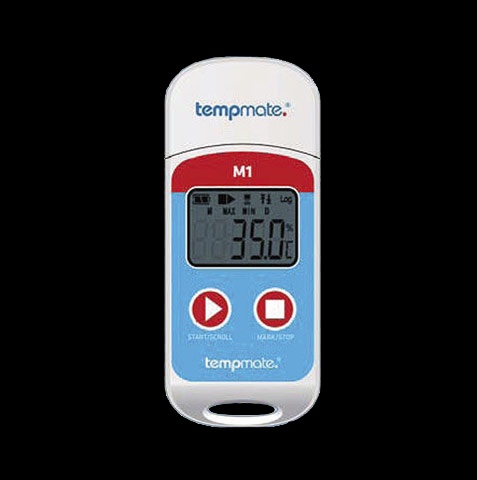Temperature recorders play a pivotal role in various industries, ensuring that sensitive goods and materials are stored and transported under optimal conditions. Selecting the right temperature recorder is crucial to maintaining product integrity and compliance with industry regulations. In this comprehensive buying guide, we'll explore key factors to consider when choosing a temperature recorder tailored to your specific needs.
Points to Consider:
- Temperature Range and Accuracy:
The first and foremost consideration is the temperature range the recorder can handle. Different industries require different temperature specifications. Ensure that the recorder you choose covers the full spectrum needed for your applications. Additionally, accuracy is paramount, especially for industries with stringent temperature control requirements.
- Data Logging Capabilities:
The ability to log and store temperature data is essential for monitoring and compliance purposes. Look for temperature recorders with sufficient memory capacity and the capability to timestamp data. This ensures a comprehensive record of temperature fluctuations over time, aiding in troubleshooting and analysis.
- Sensor Type:
The type of sensor used in a temperature recorder significantly influences its performance. Common sensor types include thermocouples, thermistors, and infrared sensors. Assess the sensor's precision, response time, and suitability for your specific application before making a decision.
- Battery Life and Power Options:
Consider the battery life of the temperature recorder, especially if it will be used for extended periods or in remote locations. Some recorders offer options for both disposable and rechargeable batteries, providing flexibility based on your needs.
- Wireless Connectivity:
In the era of digital advancements, wireless connectivity can enhance the functionality of temperature recorders. Look for devices that offer Bluetooth or Wi-Fi connectivity, allowing you to monitor and retrieve data remotely. This feature is particularly useful in scenarios where real-time monitoring is crucial.
- Compliance and Certification:
Temperature recorders may need to comply with particular laws and certifications, depending on your industry. To stay out of trouble with the law or regulations, make sure the recorder carries the required certifications and conforms with all applicable standards.
Final Thoughts:
Choosing the right temperature recorder requires careful consideration of various factors to meet the unique demands of your industry. By prioritizing features such as temperature range, data logging capabilities, sensor type, battery life, wireless connectivity, and compliance, you can ensure that the selected recorder aligns with your specific needs. investing time in researching and understanding the available options will pay off in the long run, as a well-chosen temperature recorder not only safeguards your products but also contributes to the overall efficiency of your operations. When armed with the right information, you can make an informed decision that benefits your business in the long term.


No comments yet